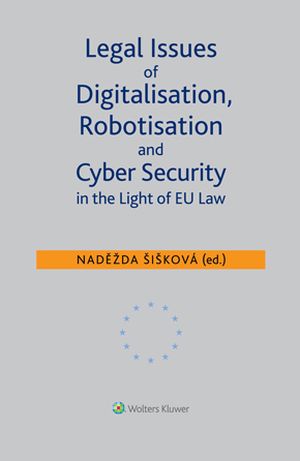
The current extremely rapid and dynamic development of modern technologies and the unprecedented degree of their integration into the everyday life of every person are radically changing the previous modus vivendi in the society.
The emergence of the Internet and the continuous development of digital technologies have brought into fore a number of new legal problems and issues that require a timely solution and proper and effective legal regulation by the EU as one of the leading regulators of the digital world. The technological developments have opened a new “window” to the borderless world of the Internet, giving a person an opportunity to exercise his/her fundamental rights at a new and unprecedented level.
This unique book thus presents the key information and solves the related problems concerning the legal regulation of the usage of modern technologies in everyday life.
The book is conceived in a form of a collective monograph prepared by an international team of renowned researchers from famous European Universities (Heidelberg University, Palacky University in Olomouc, Tallinn University of Technology, Comenius University in Bratislava and Shevchenko University in Kyiv) and scientific legal societies as well as top-level experts from practice. This team is representing the countries with the highest level of integration of modern technologies (Estonia, Germany, Czech Republic, Slovakia) or has a unique experience with provision of cyber security in the extreme conditions.
The book creates a main output from the research project with the title “The EU and the Challenges of Modern Society (legal issues of digitalization, robotization, cyber security and prevention of hybrid threats)” granted by the EACEA in the category of Jean Monnet network.
The publication of the book is supported by the financial subsidy in the amount of 3 000 Euro, sent by Palacky University to the Publisher (Intersentia).
Topics that the authors focus on:
The primarily readers/users are:
Benefits:
Great number of key legislative acts were adopted at the level of the EU. The conclusions will summarise the key ideas of the authors and the proposals de lege ferenda concerning the whole text. The same refers to the preface, which will be prepared by the Vice-President of the European Commission Vera Jourová (responsible for Values and Transparency) which will relate to the whole text.